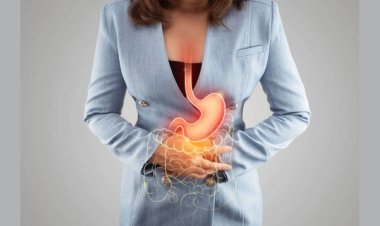The Link Between Diet and Stress Reduction
The link between diet and stress reduction is a critical one. What you eat can significantly influence your stress levels and overall mental well-being.

The Link Between Diet and Stress Reduction
The link between diet and stress reduction is a well-established one. What you eat can significantly affect your stress levels and overall mental well-being. Here's how diet and stress are connected:

Nutrient Intake
A well-balanced diet provides essential nutrients that support the brain and body's function. Nutrients like omega-3 fatty acids, antioxidants, vitamins, and minerals are crucial for managing stress and maintaining mental health.
Blood Sugar Regulation
Foods rich in complex carbohydrates, such as whole grains and vegetables, can help stabilize blood sugar levels. This prevents the mood swings and irritability that can result from rapid blood sugar fluctuations.
Gut-Brain Connection
The gut and brain are interconnected through the gut-brain axis. A healthy gut microbiome, influenced by your diet, can have a positive impact on mood and stress regulation. Probiotic-rich foods like yogurt and fermented foods can promote a healthy gut.
Serotonin Production
Serotonin is a neurotransmitter associated with mood regulation. Tryptophan, an amino acid found in certain foods, is a precursor to serotonin. Consuming tryptophan-rich foods can help boost serotonin levels, promoting a sense of well-being.
Stress Hormones
Highly processed and sugary foods can lead to the overproduction of stress hormones like cortisol. A diet rich in fruits, vegetables, lean proteins, and whole grains can help regulate stress hormone levels.
Inflammation
Chronic inflammation in the body can contribute to stress and mood disorders. A diet high in anti-inflammatory foods, such as colorful fruits and vegetables, can help reduce inflammation.
Caffeine and Alcohol
Excessive caffeine and alcohol consumption can lead to increased stress and anxiety. Moderation is key when consuming these substances.
Hydration
Dehydration can affect your mood and energy levels. Proper hydration is essential for staying mentally and physically well.
Mindful Eating
Practicing mindful eating, which involves paying attention to your food and eating without distractions, can help you make better food choices and reduce stress related to overeating or poor dietary choices.
Nutrition and Stress Coping
A healthy diet provides the energy and mental clarity necessary to cope with stress effectively. Poor nutrition can leave you feeling fatigued and less equipped to manage life's challenges.
Also read: Balanced Plates, Balanced Life
In summary, a diet rich in whole, unprocessed foods, with a focus on fruits, vegetables, lean proteins, and healthy fats, can support stress reduction and promote mental well-being. However, it's essential to remember that while nutrition is a crucial component, it's most effective when combined with other stress management strategies, such as exercise, relaxation techniques, and a supportive social network. If you have specific dietary concerns or require personalized guidance, consulting a registered dietitian can be beneficial.













